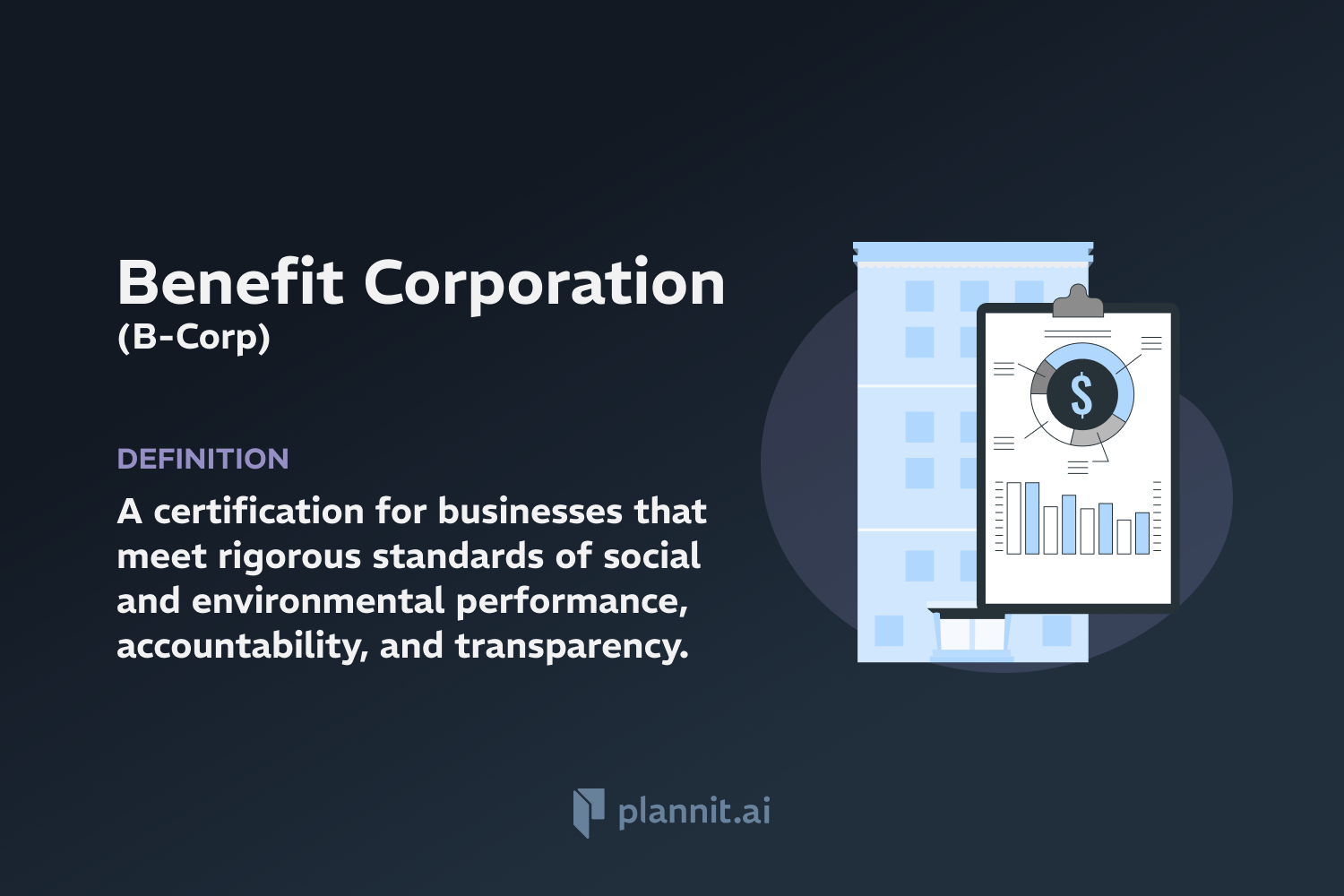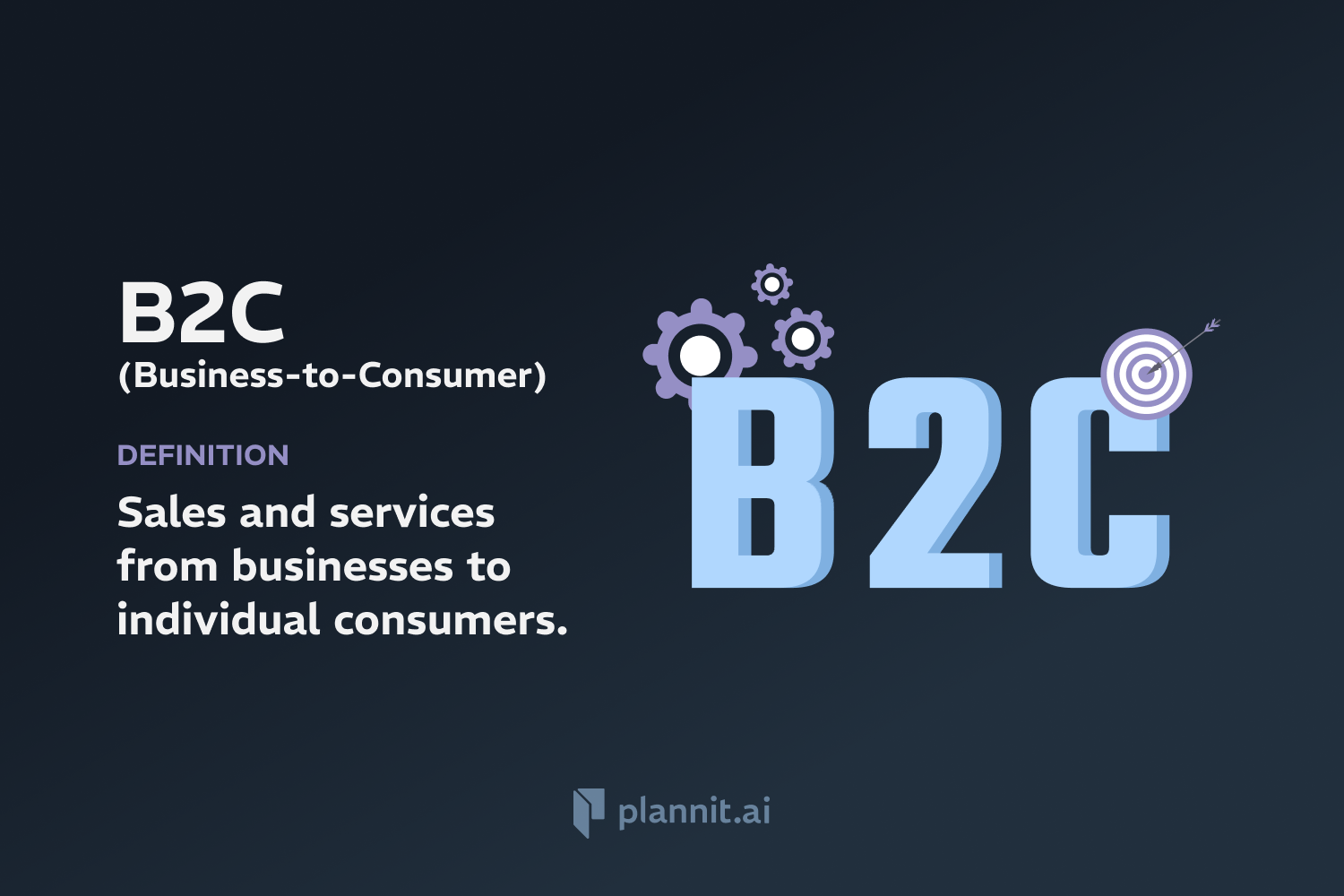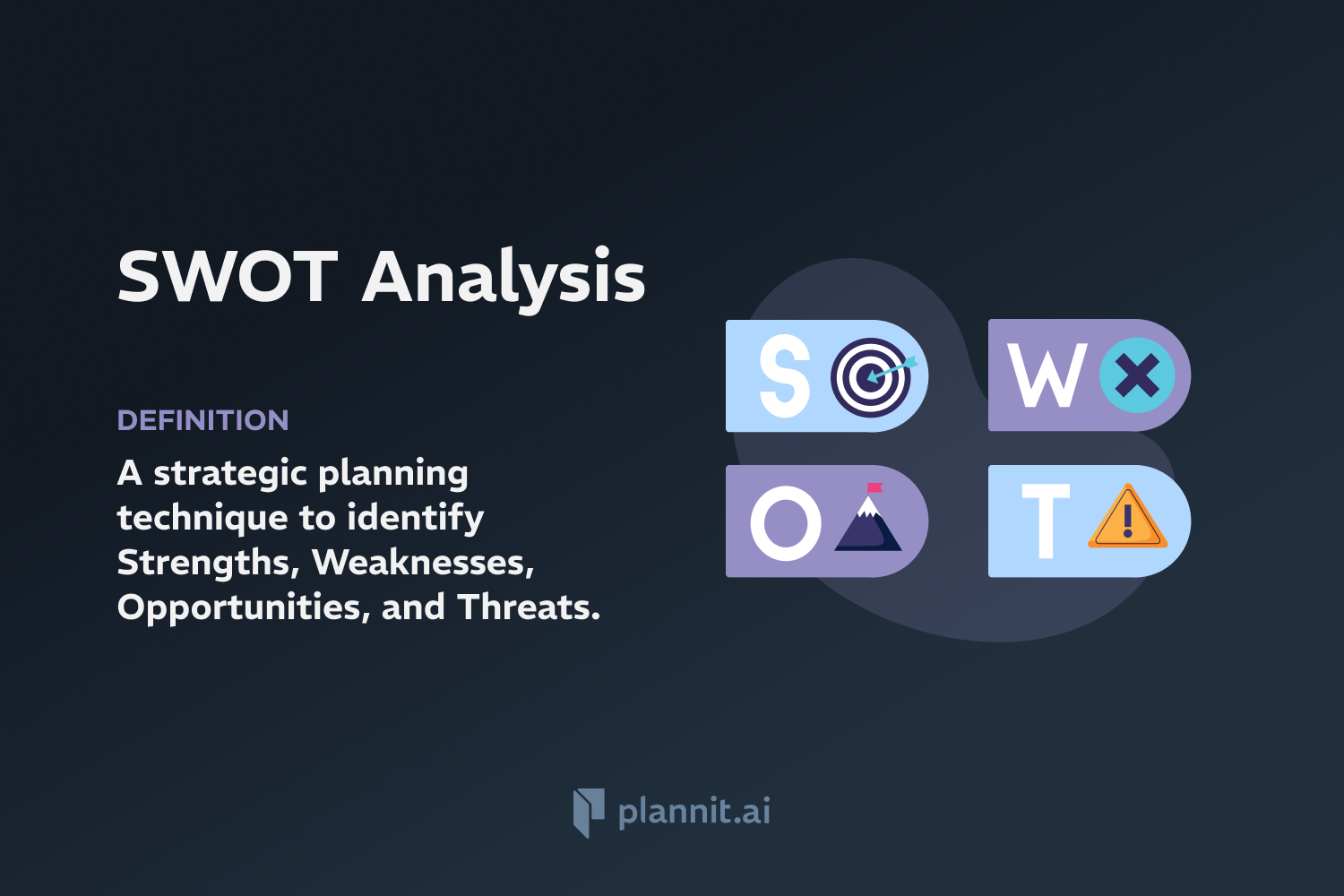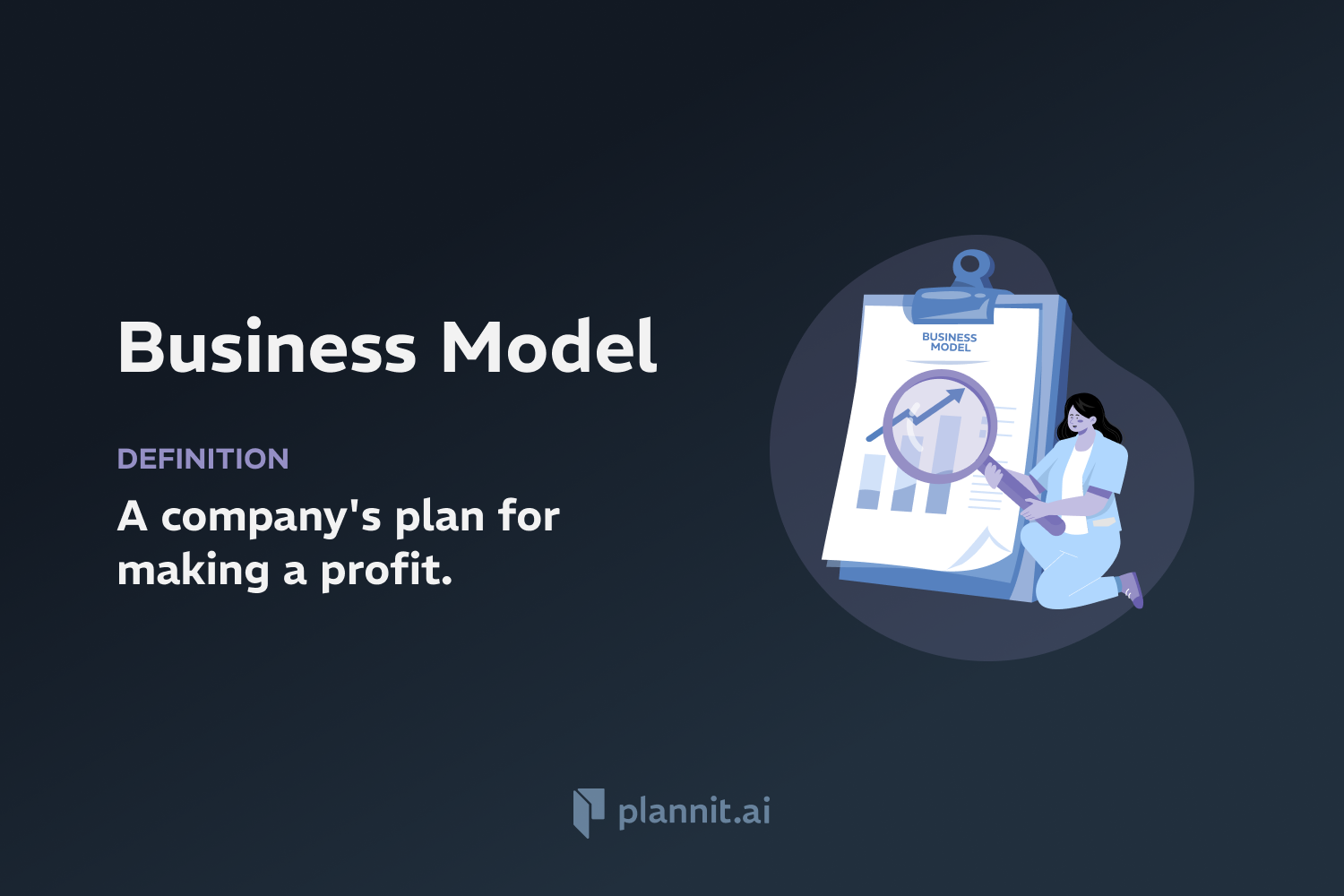Need Help With Your Business Plan?
Answer tailored questions and get a detailed business plan in minutes.
Benefit Corporation (B-Corp): Definition & In-Depth Explanation

Definition:
B Corp stands for Benefit Corporation, which is both a type of business entity and a certification granted to companies that meet high standards of social and environmental performance, public transparency, and legal accountability. This certification is aimed at for-profit companies dedicated to using business as a force for good.
Context of Use:
The B Corp certification is relevant in the realms of sustainable business practices, corporate responsibility, and social entrepreneurship. It is recognized globally and sought after by companies aiming to demonstrate their commitment to both profit and purpose.
Purpose:
The purpose of B Corp certification is to encourage businesses to consider their impact on all stakeholders, including workers, customers, suppliers, community, and the environment. This certification differentiates companies by providing a concrete measure of their sustainability and ethical practices.
Example:
Patagonia: A well-known outdoor clothing brand that earned B Corp certification due to its commitment to environmental sustainability and ethical manufacturing practices.
Ben & Jerry's: A famous ice cream company that has been a certified B Corp and is noted for its social justice advocacy and sustainable sourcing practices.
Related Terms:
Corporate Social Responsibility (CSR): A business model that helps a company be socially accountable to itself, its stakeholders, and the public.
Sustainability: The avoidance of the depletion of natural resources to maintain ecological balance.
Stakeholder: Any party that has an interest in an organization and can either affect or be affected by the business.
FAQs:
1. How does a company become a B Corp?
A: A company must undergo a rigorous assessment by B Lab, the non-profit that certifies B Corps, demonstrating it meets higher standards of performance, accountability, and transparency.
2. What are the benefits of becoming a B Corp?
A: Benefits include heightened brand trust, attraction of like-minded customers and employees, and improved access to capital from investors interested in responsible business practices.
3. Are there legal implications to becoming a B Corp?
A: In addition to certification, if a company incorporates as a Benefit Corporation, it may have legal obligations to consider the impact of decisions on all stakeholders, not just shareholders.
4. How is a B Corp different from a non-profit organization?
A: While non-profits focus on a mission without the intent of making a profit, B Corps are for-profit companies that integrate social and environmental goals with business operations.
5. Can any type of business become a B Corp?
A: Yes, any for-profit business can seek B Corp certification if it meets the necessary criteria, regardless of industry or size.
Get funding with a business plan that will impress investors.
Starting a New Business?



